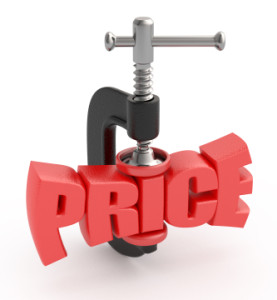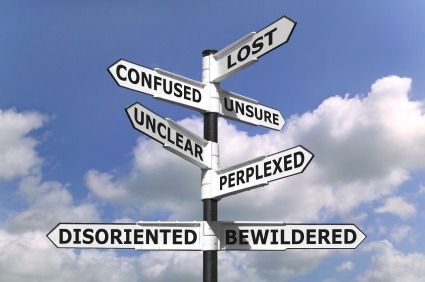How to Choose a Broker
How to Choose a Broker: This article will show you more of the practical side to selecting a brokerage account with a reputable brokerage.

How to Choose a Broker: This article will show you more of the practical side to selecting a brokerage account with a reputable brokerage.

You will probably be relieved from reading this that getting kitted out to trade financial markets doesn't need to be onerous or expensive. But there are a few things you will need to consider, and consider carefully.
The firm's main research and development office is based in Tel Aviv Israel. It originally specialized in Forex and indices spreadbetting and CFDs but has recently expanded in stock trading also. At the time of writing, eToro has 2.2 out of 5 star on Trust pilot. The comments suggest that the platform offers some impressive features but withdrawing money can be difficult. Having said that, some of the negative reviews appear to be rants rather than constructive criticism. This can be examples of traders losing money through their own recklessness rather than eToro's fault. You should therefore take this reviews with a pinch of salt. OANDA is a global financial services company providing advanced currency solutions to both retail and corporate clients all over the world. In this article, we are going to review this broker’s trading options, tools, platforms, spreads, commissions, security measures, and educational resources to help traders make the right choice. AvaTrade offers a wide variety of trading solutions (spread trading, CFDs, and social trading), and peace of mind with its comprehensive regulation, covering the EU, Australia, Canada and South Africa. Clients can use a variety of platforms for discretionary and automated trading.![]() Best Award Winning Brokers
Best Award Winning Brokers
As established in my article on Trading Myths, the broker it not out to get us! So let's go about choosing one that best suits you. After all, we simply cannot make money from Lazy Trading financial markets without opening a trading account with a (reputable) brokerage house. They act as a middleman between you and the large banking institutions. Knowing how to choose a broker will save you money in the long term!
If you have a huge amount of money to trade, you could directly with the bank. However, most people don't have millions to trade with so their best alternative is a Forex broker who will deal with multiple institutions in order for you to benefit from their liquidity.
To many of us, this process can initially seem a little daunting with the huge range of different companies all jostling for position in what is a hugely crowded marketplace. But we can only use this to our advantage as more and more incentives are typically being dangled to seduce you into doing business with them.
However, a prospective client, it's important to take more of a long-term view to see whether your broker of choice will ultimately be the best value for you in the long run rather than simply opening an account for the short-term gain of a quick incentive.
It's very much like doing your due diligence on a credit card offer from your bank; they may tempt you into signing up by offering that shiny new toy... but did you read the small print about that bastardly monthly fee?
In order to get the right fit for what you want and what the broker can offer, it's important for us to do a little digging around. But don't worry; I'll help you with this. After all, we're in this together, right?
Here's where to start. First things first. When selecting a broker, you should make sure they fulfil the following essential criteria. If they do not, then your hard earned money could be at risk.
 This will give you the peace of mind that your chosen brokerage is compliant and prepared to follow regulations put in place by their regulator. This depends on their country of location. If the broker is based in the UK, they, by law, must be authorised and regulated by the FCA (Financial Conduct Authority). If they are based in the USA, the brokerage should be regulated by the FINRA (Financial Industry Regulatory Authority). If they are based in Australia, then it's the ASIC (Australian Securities and Investments Commission).
This will give you the peace of mind that your chosen brokerage is compliant and prepared to follow regulations put in place by their regulator. This depends on their country of location. If the broker is based in the UK, they, by law, must be authorised and regulated by the FCA (Financial Conduct Authority). If they are based in the USA, the brokerage should be regulated by the FINRA (Financial Industry Regulatory Authority). If they are based in Australia, then it's the ASIC (Australian Securities and Investments Commission).
Confirm with your broker that your money will be held in a segregated account. This is essential as it means that the company will not be using your money for their own ends. It also means that if in the unlikely even the broker was to fall into administration, then your money will remain safe and in your name.
Many brokers have a minimum balance requirement for opening an account with them. Typically this can range from $500 - $1000. If this is the case with your selected broker, is the money you can afford? If not, then it's best to start trading on a demo account (discussed later) which you can open without a minimum deposit. As a rule of thumb, you should never invest money you can't afford to lose.
If the broker essentials box has been ticked then let's see whether your they really can give you more bang for your buck than their competitors
 For every trade you place, you will be required to pay what is known as a "spread". This occurs on all types of order and is the difference the bid (buy) and the ask (sell) price of that instrument. Whether you buy or sell, you will be required to pay this difference x your stake size (amount you risk per point/pip). This is how the broker makes their loot - from every trade you place. The tighter the spreads are, the more money you will save. As a general rule, the more heavily traded instruments such as currencies have narrower spreads because they are far more liquid. Do shop around; as a foreign exchange trader it makes sense to compare a basket of currencies in terms of the quoted spread between brokers to see who offers the best deal.
For every trade you place, you will be required to pay what is known as a "spread". This occurs on all types of order and is the difference the bid (buy) and the ask (sell) price of that instrument. Whether you buy or sell, you will be required to pay this difference x your stake size (amount you risk per point/pip). This is how the broker makes their loot - from every trade you place. The tighter the spreads are, the more money you will save. As a general rule, the more heavily traded instruments such as currencies have narrower spreads because they are far more liquid. Do shop around; as a foreign exchange trader it makes sense to compare a basket of currencies in terms of the quoted spread between brokers to see who offers the best deal.
If, like most people, you place your trade as a cash daily rolling order then you will endure an overnight financing fee. The price of this often varies between brokers and it's often a factor many retail traders overlook when they open their trading account. Do ask your broker about this as it may surprise him. Compare the rollover fees across a selection of brokers.
Providing your broker offers this option, and you place your trades as a futures contract then you will not have to endure this overnight financing fee. However, you will have to pay an increased spread instead. Again, compare these spreads across a selection of brokerage houses.
While many of the trades we take are constrained but not limited to the foreign exchange market, it's always handy to have as wider a selection of currencies to choose from as possible. Again, some brokers offer more pairs than others. Be demanding! Even if it means having some of the exotic cross-pairs such as NZDCAD (New Zealand Dollar Vs Canadian Dollar) or GBPNOK (British Pound Vs Norwegian Krone) as your selection criteria, the greater choice we have means we have more opportunities to potentially make money from. Simple.
Remember that tradable opportunities with huge profit potential are not exclusively consigned to the currency pairs categorised as "majors" or "minors". Some of the best trades I've taken have been on some of the more obscure and less obvious pairs. I will talk about this more a little later.
Ensure your broker gives you the facility for you to place and modify trades whenever you want, wherever you are in the world. While the vast majority of brokerage houses offer you online access to your brokerage account 24 hours a day, 7 days a week for you to do just this, I never like to assume. There are bound to be a few dinosaur brokers out there who still operate within the pre-internet age with telephone only dealing, although, admittedly, they are a dying breed!
Check they offer an online trading account this because if they don't, it will become a logistical nightmare for you. It would be pretty tiresome if you have to call your broker every time you need to trade or even check a price - especially if you are trading from far flung and exotic places like I do!
 As I've already mentioned, many brokers offer sweeteners to win you over but it's important not to base your choice entirely on this as you could find that this is compensating for hidden costs like higher spreads and rollover fees which may not seem obvious at the point of opening an account. This will cost you more in the long term if this is the case!
As I've already mentioned, many brokers offer sweeteners to win you over but it's important not to base your choice entirely on this as you could find that this is compensating for hidden costs like higher spreads and rollover fees which may not seem obvious at the point of opening an account. This will cost you more in the long term if this is the case!
If the broker fulfils all of the above criteria and are essentially regulated and competitively priced then treat anything else as a plus.
A deposit bonus; the broker offers extra lump sum of their own money to your trading account for you to trade with if you open an account with them. However, ensure you read the small print as you may find that you have to deposit a minimum amount or place a minimum number of trades in your first month in order to qualify.
Losses covered; the broker may agree to cover any losses you sustain with your trading in your up to a predefined amount. However, in many cases this is limited to a certain amount and for a certain length of time.
 Now we've established both what makes a "good" broker and what you should look out for in getting both peace of mind and value, it's usually the next stage in the process which leaves people a little bamboozled. Just what type of trading account should you open? With such a wide variety out there, it can be a little tricky to the market newcomer. If that sounds like you then fear not; it's not your fault and you are most certainly not alone!
Now we've established both what makes a "good" broker and what you should look out for in getting both peace of mind and value, it's usually the next stage in the process which leaves people a little bamboozled. Just what type of trading account should you open? With such a wide variety out there, it can be a little tricky to the market newcomer. If that sounds like you then fear not; it's not your fault and you are most certainly not alone!
I confess, I have always found so-called broker jargon and terminology complicated and it's one thing guaranteed send me to sleep... very, very quickly! There is a better way; let's take a look through the lens of the layman into what types of trading account brokers typically offer and, most importantly, how they can benefit you.
While it may be exactly what it says on the tin...it's actually a great place to start! Trading a practise account which contains pretend money will stand you in good stead as you progress onto trading with real money.
While nothing can substitute the experience gained from trading markets live with real money demo trading will give you the opportunity to practise and gain confidence in your ability to spot valid trades, place and manage your orders proficiently with the broker interface but without actually risking your money.
You can get a demo trading account for both direct market access (DMA) and spread betting accounts with many brokers will offer this facility with a view to persuading you to open a funded account with them at some point in the imminent future.
Once you feel confident enough to trade with real money, you can choose from the following options:
The standard account offering from brokers to clients. They are the client's gateway to trade, risking real money, with access all the markets the broker offers. This is including but is by no means limited to foreign exchange. The trading interface will be, in the wide majority of cases, the exactly same as the demo account's.
You will have the option of either opening a standard lot account, a mini lot account or a micro lot account.
Do bear in mind that your choice should correspond with how much money you have available to trade but, most crucially, what best keeps the risk low.
The pip value/stake size for such accounts is denominated in lots, mini lots or micro lots; one lot is the equivalent value to $10 per pip, while one mini lot stands at $1 per pip in value. A micro lot, on the other hand, is worth 10 cents risk per pip. Suffice to say, there is no point in trading a $1000 trading account in lots as you will be risking $10 per pip, and potentially blowing up your account after just one losing trade!
As a rule of thumb, open a standard lot account if you have an account size of $100, 000 or a mini lot account if you have $10, 000 to trade with. Moreover, if you have $1,000 open a micro lot account. This way, it makes trade sizing far more realistic! We will discuss this more later in Understanding reward/risk.
Exactly the same as a regular account with the availability of the same markets to trade, through the same interface provided by your broker. A key difference is that the pip value/stake size is denominated in the domestic currency of where the brokerage is located, instead of lots, mini lots or micro lots. This is a key benefit for traders who want to manage their risk with ease.
Spread betting is an account classification which lets residents of the UK trade any market (forex, indices and shares) offered by their broker, account tax free. Both capital gains tax (CGT) and stamp duty are waived because the British government considers spread betting to be a form of gambling so they can't tax who they see as a "gambler" on simply having an opinion on where they think the market is going to go. However, we know that if we are following a profitably strategy meticulously, we will not actually be gamblers - but professional traders taking advantage of these benefits.
By the same token, you will not be able to offset your losses for tax purposes. This may seem uncharacteristically altruistic of the UK government, but don't be fooled! This arrangement actually works in their favour. After all, it's likely the loss of tax revenues they will have from the majority of people offsetting losses for tax will eclipse the income from the winning minority!
Knowing how to choose a broker can sometimes feel like a daunting task. A lot of people ask who we recommend. While we have always been careful with recommendations concerning brokers in the past, we have now selected two brokerage houses who have passed our rigorous screening. Click here to find out more about our best brokers.

